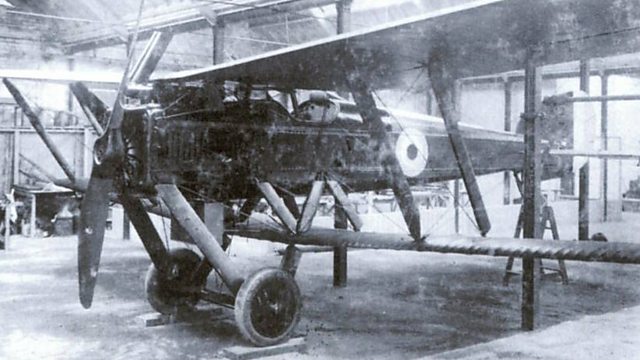Mivart Street, Bristol: How War Transformed British Industry
The carpenters that turned their passion into a core business during war
During World War One, many companies around the West had to diversify to fit the ever-changing demands of wartime production; otherwise they would risk their company and their future. One such business was Parnall and Sons who before the war were a leading wood-working manufacturer making cabinets and furniture for shops. But the conflict would change all that.
It was the company’s long association with woodcraft that led the Air Ministry to ask them to help in making wooden framing for some of the WW1 aircraft. And it was this enthusiasm and workmanship that led to their first plane – the Parnall Scout.
The Air Ministry needed a plane that would act as a coastal defence aircraft, so Parnall’s replied with the Scout. The plane soon acquired the nickname the “Zeppelin Chaser”. However, the plane was not a success due to its weight and only two flights were ever made.
Parnall’s sites around the West meant they could have various projects on the go at the same time – Mivart Street was their top secret experimental workshop.
After the war in 1920, George Parnall split the company in two with the Fishponds branch concentrating on shop fitting and George himself concentrating on aircraft manufacturing in Yate. Parnall’s continued their involvement with this industry up and until the final plane rolled off the assembly line in 1939.
Location: Mivart Street, Bristol, BS5 6JF
Image: Plane inside Parnalls at Mivart Street
Duration:
This clip is from
Featured in...
![]()
����ý Radio Bristol—World War One At Home
Places in Bristol that tell a story of World War One
![]()
Home Front Life—World War One At Home
Everyday life in the towns, villages and countryside
More clips from World War One At Home
-
![]()
The loss of HMY Iolaire
Duration: 18:52
-
![]()
Scotland, Slamannan and the Argylls
Duration: 07:55
-
![]()
Scotland Museum of Edinburgh mourning dress
Duration: 06:17
-
![]()
Scotland Montrose 'GI Brides'
Duration: 06:41







